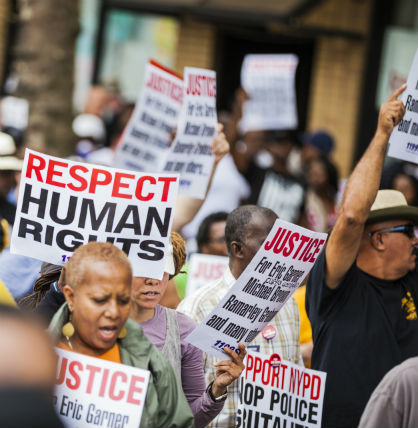
Reparations for Gross Violations of International Human Rights Law and Grave Breaches of International Humanitarian Law
On Wednesday, March 17, 2021, a virtual conference took place on “Reparations for Gross Violations of International Human Rights Law and Grave Breaches of International Humanitarian Law.” This conference was co-hosted by the Center for Human Rights & Humanitarian Law at American University Washington College of Law, the Geneva Academy of International Humanitarian Law & Human Rights, the Robert F. Kennedy Foundation on Human Rights, and the International Law Students Association.
The goal of the conference was to identify contentious points, as well as points of agreement, in the international legal community in order to promote development in this important area of international law. The focus was on the various measures of reparations that are recognized in international law, including restitution, compensation, and satisfaction.
The speakers identified various challenges for the current reparations regime of international human rights violations. Among these challenges are (1) the legal framework within which the reparations are established; (2) the nature and scope of measures that could be required from states to fully repair violations; and (3) the effectiveness of international orders providing reparations.
As to the first issue, the fragmented nature of the legal framework also applies to reparations in human rights cases. The International Court of Justice has developed some jurisprudence primarily in cases of diplomatic protection. The International Law Commission so far has addressed reparations in various situations, but not in the specific circumstances of human rights law. The United Nations General Assembly has adopted a resolution about the “Basic Principles and Guidelines on the Right to a Remedy and Reparation for Victims of Gross Violations of International Human Rights Law and Serious Violations of International Humanitarian Law” (GA res. 60/147 of 16 December 2005). The jurisprudence of universal and regional human rights bodies is fragmented and diverse. However, there seems to be agreement that the overarching principle expressed in the PCIJ’s 1928 Chorzov case that “it is a principle of international law that the reparation of a wrong may consist in an indemnity corresponding to the damage which the nationals of the injured State have suffered "as a result of the act which is contrary to international law” (para. 68) should be applicable to all human rights violations.
The second issue is related to the scope of the measures of reparation that would be appropriate in human rights cases. This issue generated substantial debate and discussion. The range of measures can potentially be very broad, from monetary payment to long-term psychological care, and from the amendment of domestic legislation to the erecting of commemorative sites. Monetary compensation should follow the Chorzov Case’s reparation principle and any reparation granted should be proportionate to the damage caused. Some panelists referred to the “transformative purpose” of reparations, which transcends the individual victim and aims at improving the general situation of the society as a whole or certain disadvantaged groups within it. By doing so, reparations ordered in human rights cases may require the elimination of structural deficiencies within these states. A particular challenge in this context is the reparation of human rights violations committed against children, and systematic and widespread human rights violations.
Regarding children, some human rights bodies (i.e. in Africa) have for instance demanded the granting of a certain citizenship to the affected children when necessary to protect them from additional future harm. Regarding situations of systematic and widespread human rights violations, several international human rights bodies have required states to establish commissions of inquiry to properly handle each individual situation. There is also substantial debate about the precise needs of victims with psychological damages, for instance in cases of torture. Sometimes even very advanced health care systems struggle to find the best approach to support those victims.
The third issue referred to the enforcement of reparation orders. States sometimes do not comply with international decisions ordering reparations. In situations of mass violations of human rights, the panelists underlined the severity of the consequences of a failure to enforce “collective reparations” as shown in some cases in the Inter-American Human Rights System. The problem is aggravated by the limited capacity and legal powers of the Inter-American Court of Human Rights to supervise and enforce its judgments.
The challenges identified in international human rights law related to the legal basis, the scope of reparations, and the enforcement are present also in violations of international humanitarian law, albeit in an aggravated form. In practice, it is hard to hold the states or armed groups internationally responsible for their conduct during an armed conflict. International and national mechanisms that could help to obtain redress often do not exercise jurisdiction over the affected areas. In addition, international criminal jurisdiction is currently still limited and subject to strict jurisdictional requirements. The added difficulty to collect evidence about damage and attribution in situations of armed conflict, and the frequent circumstance that either the victims lost their lives or have been displaced, are further reasons why in practice it is hard to provide meaningful reparation to the victims in situations of armed conflict and breaches of international humanitarian law.
More information on the event can be found here.